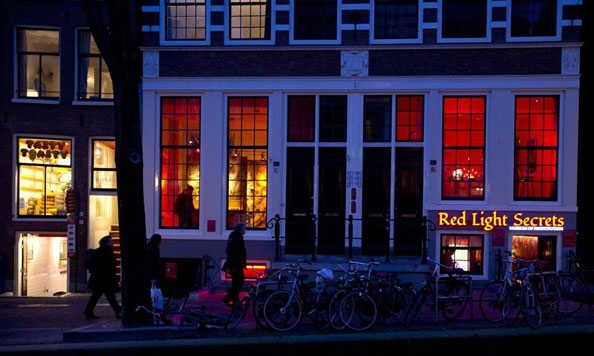Twenty-six Danish researchers have signed a protest letter against the European Parliament’s recommendations to criminalise sex work. Politicians ignore most of the research in this field, they argue. They agree with the 91 international researchers who argue against the EU proposal and instead urge politicians to listen to sex workers and their organisations recommending a decriminalisation.
The European Parliament recently recommended that its member states should criminalise sex work. This has prompted 26 Danish researchers to sign a protest letter against the proposal, as they believe that criminalisation would compromise the safety of sex workers.
They believe that politicians have ignored the majority of the research in this field, including reports from the UN, WHO and Human Rights Watch, who all recommend a decriminalisation of sex work.
Christian Groes-Green, assistant professor at the Department of Culture and Identity at Roskilde University is one of the 26 Danish researchers who signed the protest letter. He believes that politicians tend to ignore the relevant research when they recommend criminalisation of sex work:
“A clear majority of the world’s researchers in this field recommend a rejection of criminalisation, but the politicians in the EU Parliament have turned their backs on the research,” he says.
Prohibition makes the women dependent on procurers
Groes-Green believes that prostitutes have nothing to gain from criminalisation. The criminal procurers who organise the sex work, on the other hand, do:
”A vast majority of prostitutes do not work for traffickers or pimps. They work for themselves in order to help their impoverished families in Africa, Asia and Latin America. If finding customers becomes a problem as a result of sex work becoming criminalised, these prostitutes become dependent on procurers who can arrange contacts with customers.”
The procurers are not the only source of reduced safety for the prostitutes in case of a criminalisation. The prostitutes will find it more difficult to report violent customers to the police, he says:
”When sex work became criminalised in Sweden, a great majority of prostitutes suddenly started hiding from the authorities. They are forced to work in places that do not look like brothels, and they do not dare to report any abuse to the police for fear of the place being closed down.”
Criminalisation protects women against abuse
Britta Thomsen, a Danish Social Democrat member of the EU Parliament, does not believe that criminalisation will make life less safe for the prostitutes. She thinks it would protect them against abuse:
”When a prostitute in Denmark calls the police to report an assault, she is told that this is something to be expected when working as a prostitute. Nothing happens,” she says.
”However, if sex work is criminalised as in Sweden, the prostitutes can contact the police knowing that the customer has violated the law simply by being a customer. This empowers the women.”
Liberal legislation leads to an increase in trafficking
According to Thomsen, Sweden is proof that the criminalisation of sex work leads to a reduction in human trafficking:
Facts
In the protest letter, the Danish researchers argue that:
- The recommendation has no scientific basis.
- The Swedish prohibition has driven prostitutes underground, leaving them more distrustful of the authorities.
- Prohibition increases the prostitutes’ dependency on traffickers and other criminals.
- Sex work is not the same as violence, rape and human trafficking.
- Prohibition does not solve fundamental problems such as poverty and global inequality.
”Traffickers do not want to go to Sweden because it’s just too troublesome for them there. The large groups of Africans and gypsies go elsewhere. We can see in the statistics that the countries with the most liberal prostitution legislation, such as the Netherlands and Germany, are the countries with the greatest human trafficking problems.”
Thomsen refers to a new EU report about sexual exploitation, prostitution and gender equality, which says that “experts have found a relation between the liberalisation of prostitution and increasing numbers of trafficking in human beings.”
She also calls attention to a statement, signed by 75 international researchers, which supports the EU Parliament’s recommendation to criminalise sex work.
Christian Groes-Green does not, however, believe there is sufficient research evidence to establish a plausible link between decriminalisation and increased human trafficking. He points out that researchers generally know very little about which countries have the greatest problems with human trafficking:
”There is no research that shows which countries have the most human trafficking activity. It’s a world that is extremely inaccessible – even for researchers. The very high numbers of victims mentioned by the EU are based on an estimate, not actual cases or convictions.”
By: Andreas Abildlund[:]


